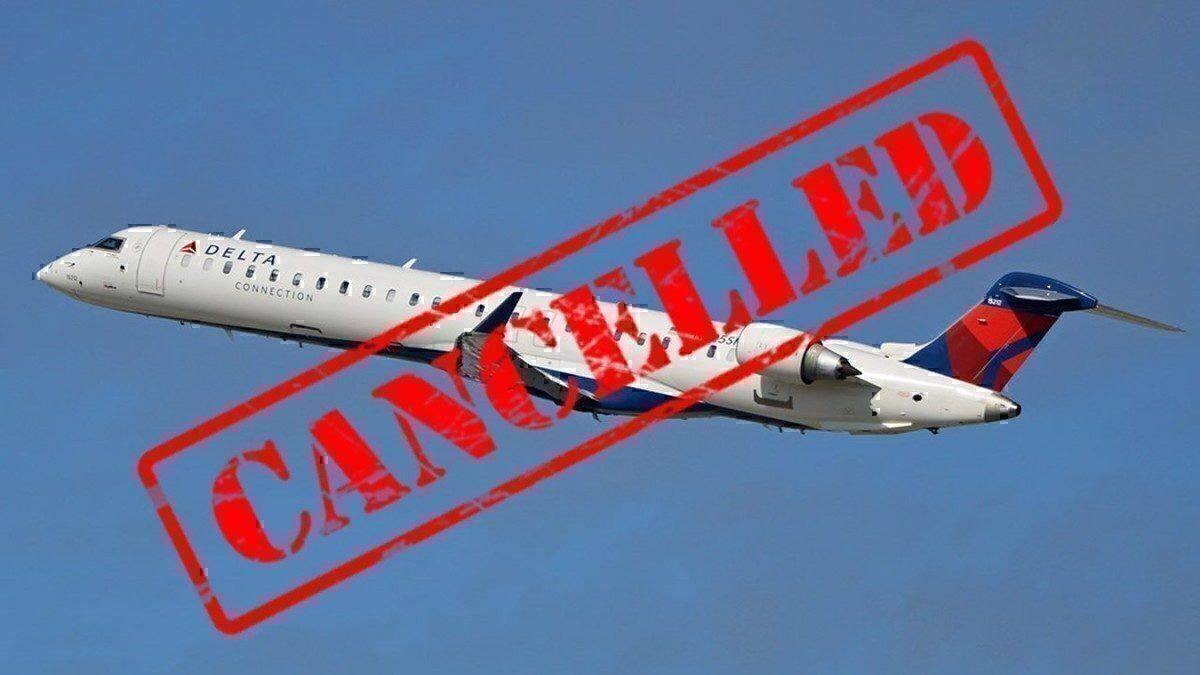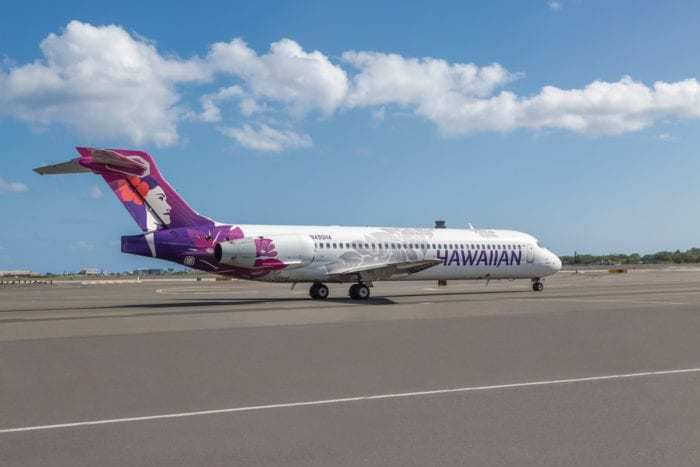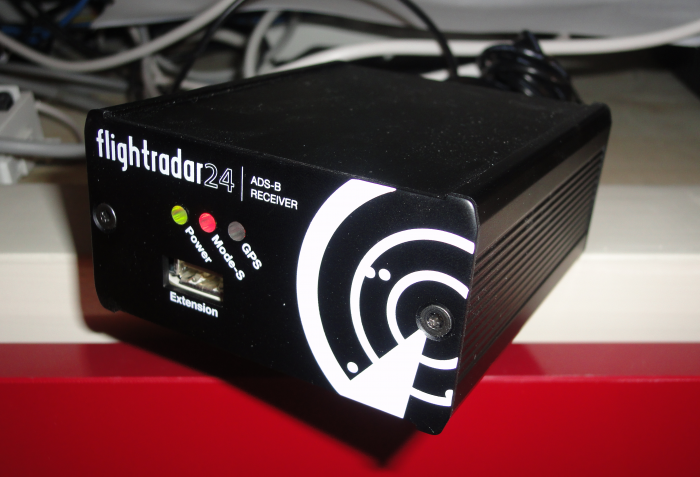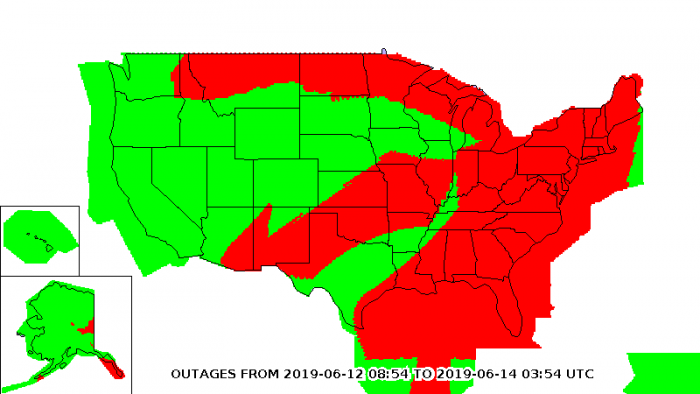GPS issues have caused hundreds of flights to be canceled in the US over the weekend. From the 9th June to the 10th, an estimated 400 flights were grounded, as the Collins made GPS systems failed. Collins have identified the problem and are working to fix it as soon as possible.
Hundreds of flights have been cancelled across the US due to a glitch with their positioning system. The impact, which mainly affected regional flights, was mainly felt by regional carriers using smaller aircraft like Bombardiers and Embraers.
The affected aircraft are equipped with Collins Aerospace GPS sensors that use ADS-B technology. The timing of the glitch couldn’t have been worse, as the FAA recently instructed all airlines to install the ADS-B technology by January 2020.
Which flights and aircraft are affected?
According to Flight Global, Collins Aerospace are working with safety regulators to rectify the issue. The majority of the issues were caused in regional jets, such as the Bombardier CRJ 700 and 900, although any aircraft with the Collins navigation parts which rely on the ADS-B system could be in trouble. Flight Global have specified some airlines as cancelling flights, including:
- Delta – Cancelled more than 100 flights on 8th and 9th June
- American Airlines – Made ‘scattered delays and cancellations’ over the two days
- Hawaiian – Cancelled weekend flights on Boeing 717s
- United – Said the problem has been resolved for them, and didn’t specify how service was affected
According to a discussion forum on Flight Aware, the affected Collins units are the GPS-4000S and the GLU-2100. Aircraft which have been fitted with these units include:
- Bombardier Challenger 300
- Bombardier Challenger 350
- Bombardier Challenger 604
- Bombardier Challenger 650
- Bombardier Global 5000 Vision
- Bombardier Global 6000
- Embraer Legacy 450
- Embraer Legacy 500
- Gulfstream G150
- Gulfstream G280
- Textron CJ3
- Textron Hawker 800XP
Collins have said that other aircraft fitted with those units could also be affected.
What is ADS-B?
ADS-B stands for Automatic Dependent Surveillance-Broadcast and is a communication system used by many aircraft around the world. The aircraft sends its speed, slight number, location and other data using the 1090 MHz band. This data is collected by stations, and broadcast to air traffic controllers via their screens.
As well as ATCs, other aircraft receive information from the ADS-B system, as part of the Traffic Collision Avoidance System (TCAS). In fact, the signal from the system is not at all encrypted, so if you have the right tech, you can watch the planes that are flying over your house too.
In the US, the FAA have demanded that all aircraft have ADS-B by January 1st 2020, so many have already had the system installed. Aircraft using this system rely on GPS to cross check their position, which is where the problem has come in.
GPS isn’t nonfunctional, but it is ‘degraded’. According to the FAA outage map, the service is degraded right across the Eastern seaboard, as well as in the north of the USA. With no GPS, aircraft cannot transmit their position accurately, and ATCs must rely on old fashioned radar to find the aircraft. This presents a safety issue for flights, which leads to no other solution than to ground the aircraft.
As you can see from the up to date outage map, there is still a GPS issue. The FAA have attempted to rectify the problem by issuing a waiver to affected flights, although they must remain at FL280 and below.
What’s the problem?
According to AIN Online, the problem is due to a ‘leap second’ occurring, causing Collins GPS units to become unable to track the satellites. Collins shared with AIN a notice issued to operators, where they stated:
“The root cause is a software design error that misinterprets GPS time updates. A ‘leap second’ event occurs once every 2.5 years within the U.S. Government GPS satellite almanac update. Our GPS-4000S (P/N 822-2189-100) and GLU-2100 (P/N 822-2532-100) software's timing calculations have reacted to this leap second by not tracking satellites upon power-up and subsequently failing. A regularly scheduled almanac update with this ‘leap second’ was distributed by the U.S. government on 0:00GMT Sunday, June 9, 2019, and the failures began to occur after this event.”
Collins has told operators they should contact their aircraft manufacturer to obtain a minimum equipment list (MEL) for their GPS if not already in place. Those who have not powered on their units since the 9th June should leave them off. They say that the update to the GPS constellation is set for Sunday 16th June at midnight, which should in theory rectify the issue.
Until then, many regional aircraft will be forced to fly at lower than usual altitudes, or to remain on the ground. Have you been affected by these cancelled flights? Let us know in the comments.




